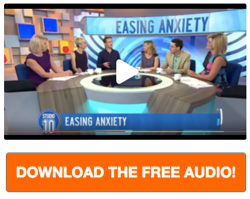Drugs for anxiety disorders abound, especially because depression is a common occupational hazard in all countries, particularly developed ones. It is not uncommon to find at least one employee under anti-anxiety medication in the workplace. There is no sign that the person is taking medication, and they usually blend in with everyone else without much drama.
Anxiety medicines have taken a lot of flak from users that claim to be addicted to the drugs. Many psychologists still maintain that the drugs work well until a person loses confidence to be able to succeed in conquering the disorder without the drug. The problem with anxiety medicines is that they usually foster dependence behaviour.
When you start looking for medication to treat your anxiety disorders, you will often hear the term ‘zoloft’ mentioned by people who have been using anti-anxiety drugs for years and your own therapist. Some of the questions you may be asking now would be the following:
What is Zoloft?
Zoloft is a selective serotonin re-uptake inhibitor, otherwise known as serotonin-specific reuptake inhibitor. Zoloft is a brand name for a particular SSRI that is frequently prescribed for those struggling with anxiety disorders. While many believe Zoloft for anxiety treatment is effective, this drug is more commonly used for personality disorders and depressive mood swings. SSRIs like Zoloft increases the level of serotonin, a neurotransmitter, in the human body. The serotonin exists extracellularly, which gives it the freedom to interact with various other chemicals.
How Does it Work?
The simplest way to describe Zoloft in terms of how it works is saying that it’s a mood modifier. People that use Zoloft are less prone to sinking into a depressive state. To a normal person, the effect can manifest by showing hyperactivity. To a person struggling with depression, the mood change could mean he can act normally around others and actually get something done during the day.
Is It Effective?
Many users claim that using Zoloft for anxiety spells the difference between sinking into depression and gaining ground in terms of conquering anxiety. However, there is an equal number of users claiming that Zoloft does more harm than good. Because the reviews are mixed at best, it’s better to describe the pros and cons of using Zoloft.
Zoloft takes care of the onset of anxiety disorder symptoms, which is its main selling point. A user would feel fine during the time when he would usually experience the symptoms of anxiety like nausea and queasiness. Users of Zoloft for anxiety treatment are usually those showing mild symptoms. Severe anxiety patients claim that Zoloft has little or no effect at a low dose. However, many doctors still claim that a consistently low dose of Zoloft can be effective if therapy is done simultaneously.
On the downside, many Zoloft users experience side effects like lack of sexual urge and discontinuation syndrome. While many users expect the effects of Zoloft on sexual desire, the discontinuation syndrome often catches them off guard. When the time for discontinuing medication comes, a patient would experience a relapse, which may be a sign of dependence. The relapse may lead to prolonged or even lifetime use of Zoloft; something that is not recommended.
